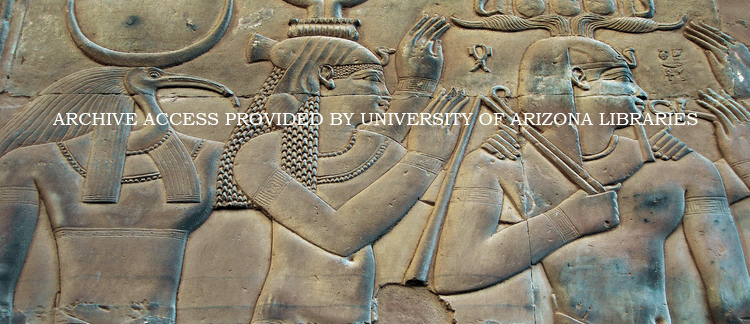Abstract
The 2002 University of Toronto and SCA (renamed MoA) expedition to el-Markha Plain, South Sinai, mapped and excavated the eastern portion of a small, seasonal copper smelting site and anchorage (Rothenberg’s site 346), which W. F. Albright had discovered in 1948 and dated to the early New Kingdom. In 2002, this encampment yielded potsherds from Nile silt vessels (5%) and numerous pottery fragments (95%) from two types of “Sinaitic”/Red Sea fabrics, most of which date to the Middle Kingdom. The remaining artifacts represent copper lumps and slag, stone tools, fish bones, sea urchin spines, marine shells, and coral. The expedition also investigated an adjacent wadi bed and waterfall, and found isolated pottery scatters from Egyptian store jars at several places along the northwest edge of the plain. In addition, the team surveyed Rothenberg’s site 345 (Ras Budran), Seih Baba, the mouth of Wadi Sidri, and selected portions of el-Markha Plain to the south of Abu Rodeis.
How to Cite
Mumford, G., (2015) “Explorations in El-Markha Plain, South Sinai: Preliminary Findings at Tell Markha (Site 346) and Elsewhere”, Journal of Ancient Egyptian Interconnections 7(1), 91-115. doi: https://doi.org/10.2458/azu_jaei_v07i1_mumford3
2301
Views
446
Downloads
